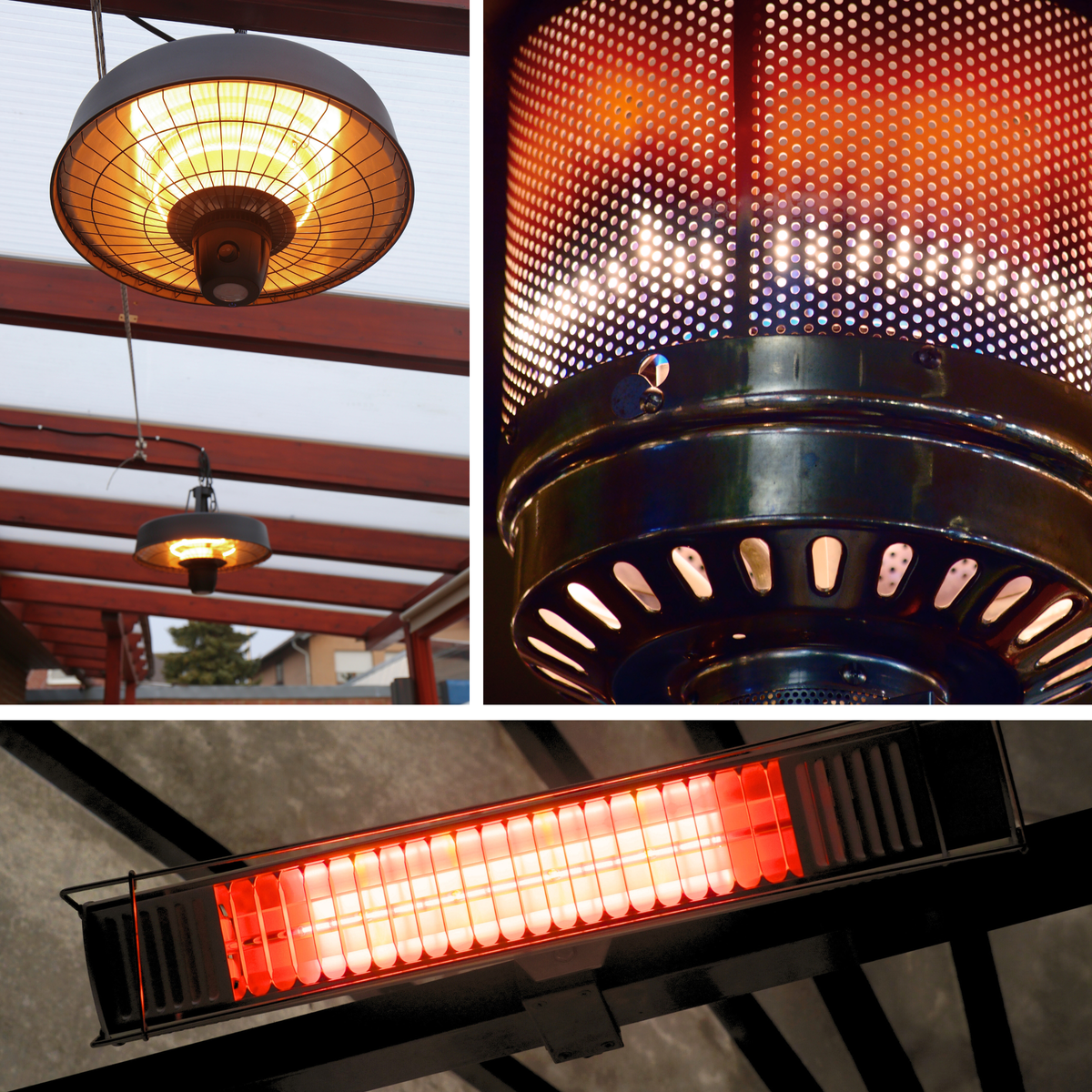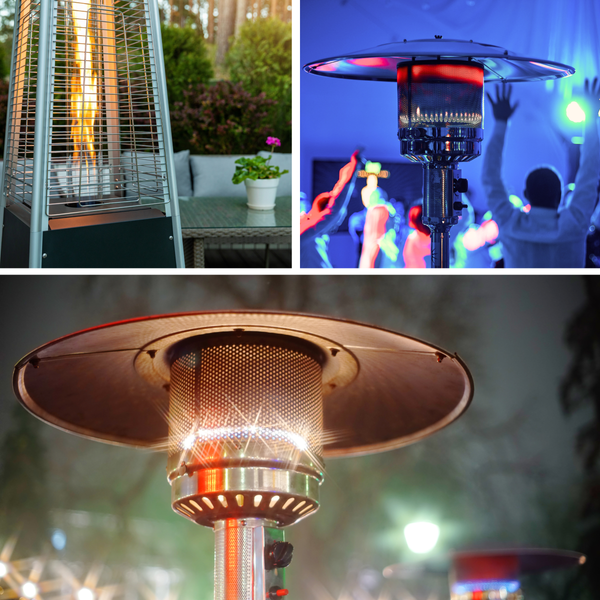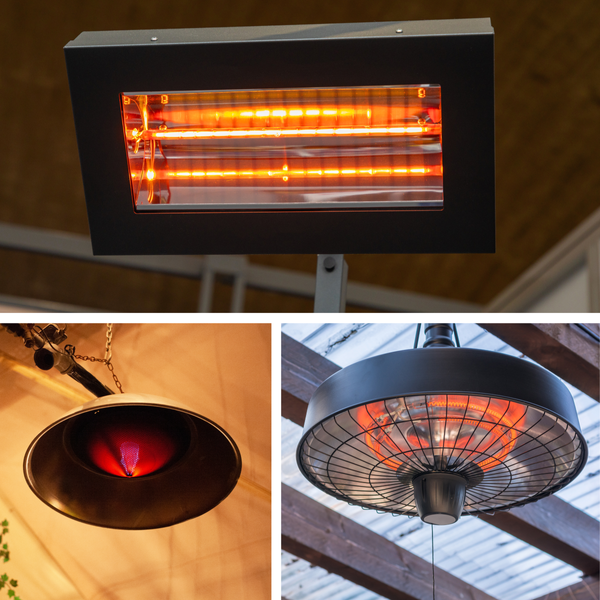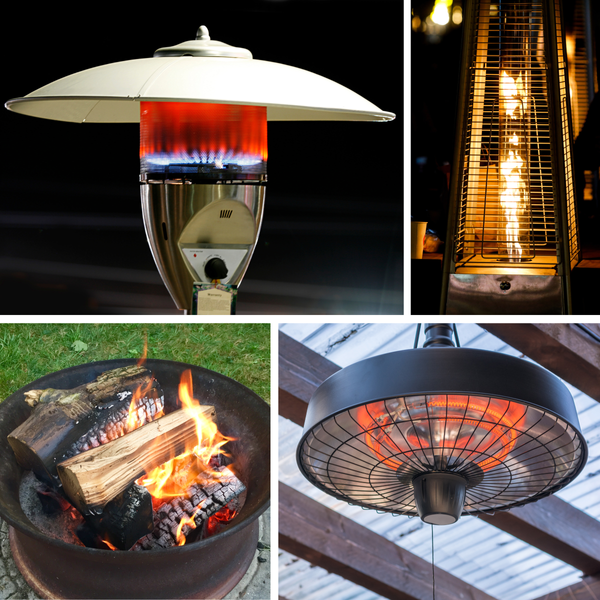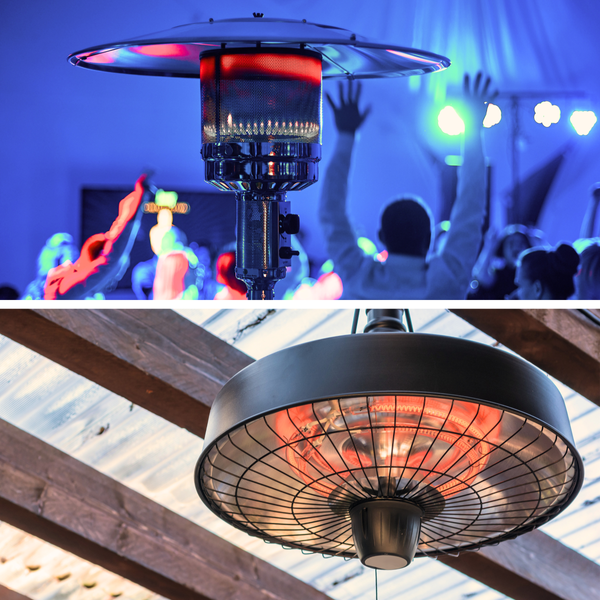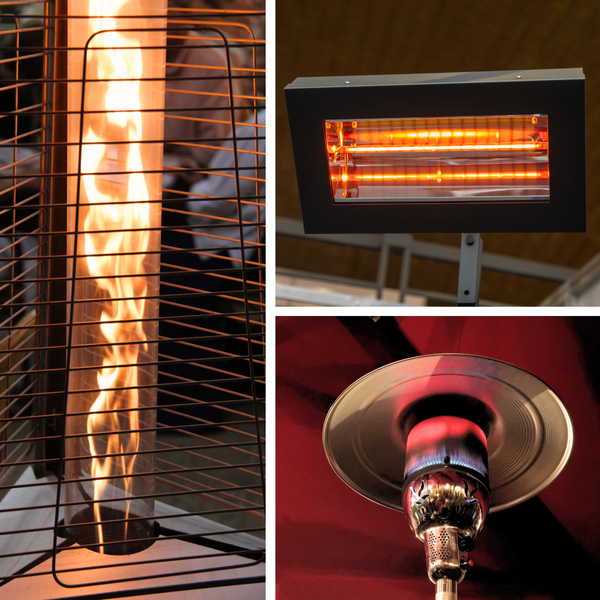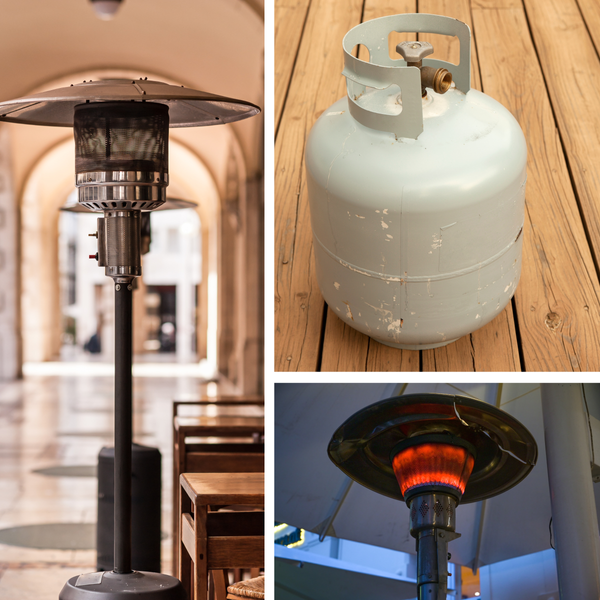When the colder months roll in, the comfort of your outdoor patio doesn't have to hibernate until spring. With the right heater, you can transform your chilly deck into a cozy retreat. But the question remains: how big of a heater do I need for my patio? This informative guide will walk you through the essentials of choosing the perfect heater to keep your outdoor space warm and welcoming.
Key Takeaways:
- Understanding the size and type of heater needed for your patio is crucial for efficiency and comfort.
- The heat output, measured in British Thermal Units (BTUs), is a key factor in determining the right heater size.
- Safety features and energy sources are important considerations when selecting a patio heater.
Determining Your Patio's Heating Needs
Before you start browsing through the myriad of outdoor heaters, it's essential to calculate the square footage of your patio. This measurement will be the foundation for determining how many BTUs are required to adequately heat your space. As a rule of thumb, an outdoor area typically needs about 20 BTUs per square foot. So, for a 100 square foot patio, you'd be looking at heaters that offer around 2,000 BTUs.

Types of Patio Heaters
There are several types of patio heaters to consider, each with its own advantages. Propane heaters are popular for their portability and ease of access to propane tanks. Electric patio heaters are clean burning and convenient, requiring only an electrical outlet to operate. Natural gas heaters, on the other hand, require professional installation but offer a permanent fixture with a continuous fuel supply.
Heat Output and BTUs
The term BTU stands for British Thermal Units and is a measure of heat output. It essentially tells you how much heat a heater can produce. When considering how many heaters or how many BTUs you need, remember that a higher BTU rating means more warmth. For larger patios or in regions with harsher weather conditions, a large heater with a high BTU count will be necessary to maintain a comfortable temperature.
Electric vs. Propane vs. Natural Gas
Each energy source has its merits. Electric heaters are ideal for those who prefer a smoke-free environment and want to avoid the hassle of refilling propane tanks. Propane heaters offer mobility and ease of use, as they don't require fixed power sources. Natural gas heaters are cost-effective for long-term use and are considered more eco-friendly due to their clean-burning nature.
Safety Features to Consider
When selecting a heater for your outdoor space, safety should be a top priority. Look for heaters with safety features such as automatic shut-off mechanisms and designs that prevent tipping. Especially in windy conditions, these features are vital to ensure the safety of your guests and property.

Propane Heater Efficiency and Consumption
When considering a propane heater for your patio, understanding its efficiency and fuel consumption is crucial. Propane heaters are rated in British Thermal Units (BTU), which measure the amount of heat required to raise the temperature of one pound of water by one degree Fahrenheit. A higher BTU rating indicates a more powerful heater, capable of warming larger areas. However, efficiency isn't solely about power; it's also about how effectively the heater uses propane gas to produce heat. Efficient models ensure that less fuel is wasted, saving you money and reducing the need for frequent propane tank refills during the winter months.
Propane patio heaters are popular because they can be easily moved and do not require electricity, making them perfect for areas where power outlets are not readily available, such as porches or open-air patios. The consumption rate of a propane heater is typically measured in pounds of propane per hour. This rate varies depending on the heater's BTU output and the efficiency of its design. For example, a heater with a 40,000 BTU rating might consume around one pound of propane per hour, providing a cost-effective solution for keeping your outdoor spaces warm without the worry of high energy bills or the need to run electrical cords outdoors.
Permanent Fixtures vs. Portable Options
When selecting a patio heater, one of the key decisions is whether to opt for permanent fixtures or portable models. Permanent fixtures are installed in a specific location and often connected to a natural gas line or a large propane tank. These are ideal for homeowners who frequently use their outdoor spaces and prefer a fixed heating solution. Permanent heaters can be designed to blend seamlessly with your patio's aesthetic, and they don't require storage space when not in use. They are also typically more robust and can handle harsher weather conditions, making them a reliable choice for the winter months.
On the other hand, portable propane heaters offer flexibility and convenience. They can be moved to different areas of your porch or patio, depending on where you need warmth. This adaptability is particularly useful for entertaining guests in various outdoor settings or for heating specific zones. Portable heaters often use smaller propane tanks, which are easier to replace or refill but may need more frequent attention depending on usage. Whether you choose a permanent or portable heater, consider the square feet of space you need to heat, the typical air temperature during use, and the level of portability or permanence that best suits your lifestyle and heating needs.

Infrared Heat Technology
Infrared heaters are a modern solution that provides direct, radiant heat, similar to the warmth of the sun. These heaters are efficient and often come with adjustable settings, allowing you to direct the heat exactly where it's needed. They're perfect for spot heating and can be more energy-efficient than traditional heaters.
Sizing Up for Weather Conditions
The climate you live in will significantly influence the size and type of heater you'll need. In areas with mild winters, a smaller heater may suffice. However, in regions where the temperature drops significantly, you'll need a heater with a higher BTU rating to combat the cold and keep your outdoor space heated.
Installation and Access
Consider the layout of your patio and the accessibility of fuel sources. Electric patio heaters will need to be near an electrical outlet, while propane heaters need space for safely storing propane tanks. Natural gas heaters will require professional installation to connect to your home's gas line. Ensure that whichever heater you choose can be accommodated by your outdoor space.
Aesthetic and Functionality
Your outdoor heater should not only be functional but also complement the aesthetic of your patio. From sleek, modern electric heaters to rustic, fireplace-like propane options, there's a style to suit every taste. Choose a heater that blends with your outdoor decor while providing the warmth your guests need.

Maintenance and Care
To ensure the longevity of your patio heater, regular maintenance is key. Keep your heater clean and check for any signs of wear or damage, especially after harsh weather conditions. For propane heaters, regularly inspect the propane tanks and connections for leaks. Electric heaters generally require less maintenance but should still be checked for any electrical issues.
Summary
Choosing the right heater for your patio involves understanding your space's square footage, the heat output required, and the type of energy source that best suits your needs. Remember to prioritize safety features and consider the weather conditions in your area. With the right heater, you can enjoy your outdoor patio even during the cooler months.
FAQ Section
Q: How do I calculate the size of the heater I need for my patio?
A: Measure the square footage of your patio and multiply it by 20 BTUs to estimate the heat output needed. For example, a 200 square foot patio would require approximately 4,000 BTUs.
Q: Are electric patio heaters better than propane or natural gas heaters?
A: It depends on your needs. Electric heaters are convenient and clean, while propane heaters are portable and easy to use. Natural gas heaters are cost-effective for long-term use and don't require refilling.
Q: What safety features should I look for in a patio heater?
A: Look for heaters with automatic shut-off mechanisms, sturdy bases to prevent tipping, and certifications from recognized safety organizations. These features help ensure the heater operates safely in your outdoor space.



